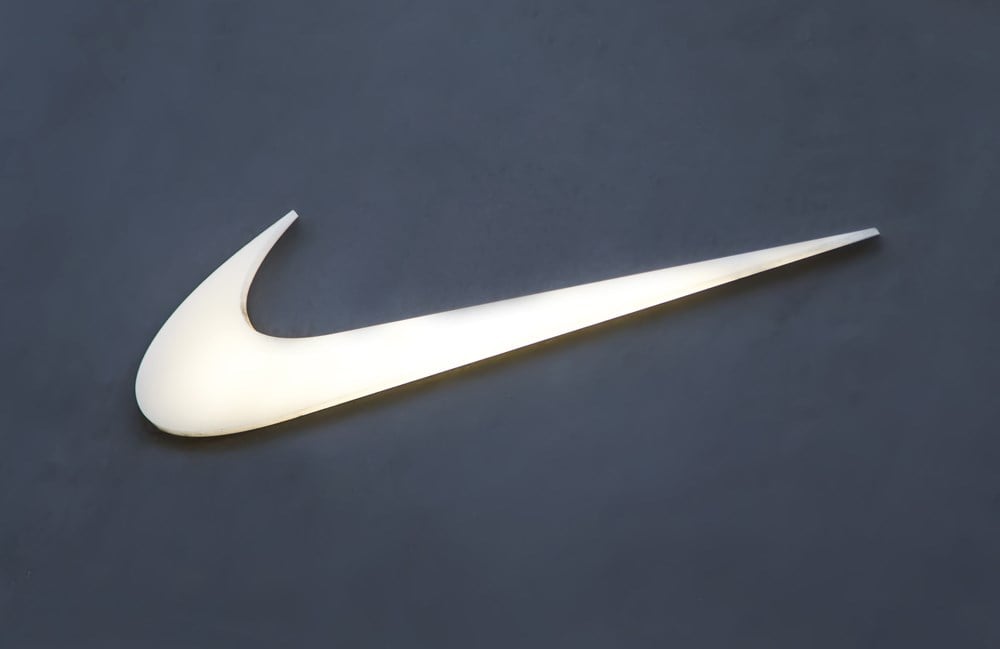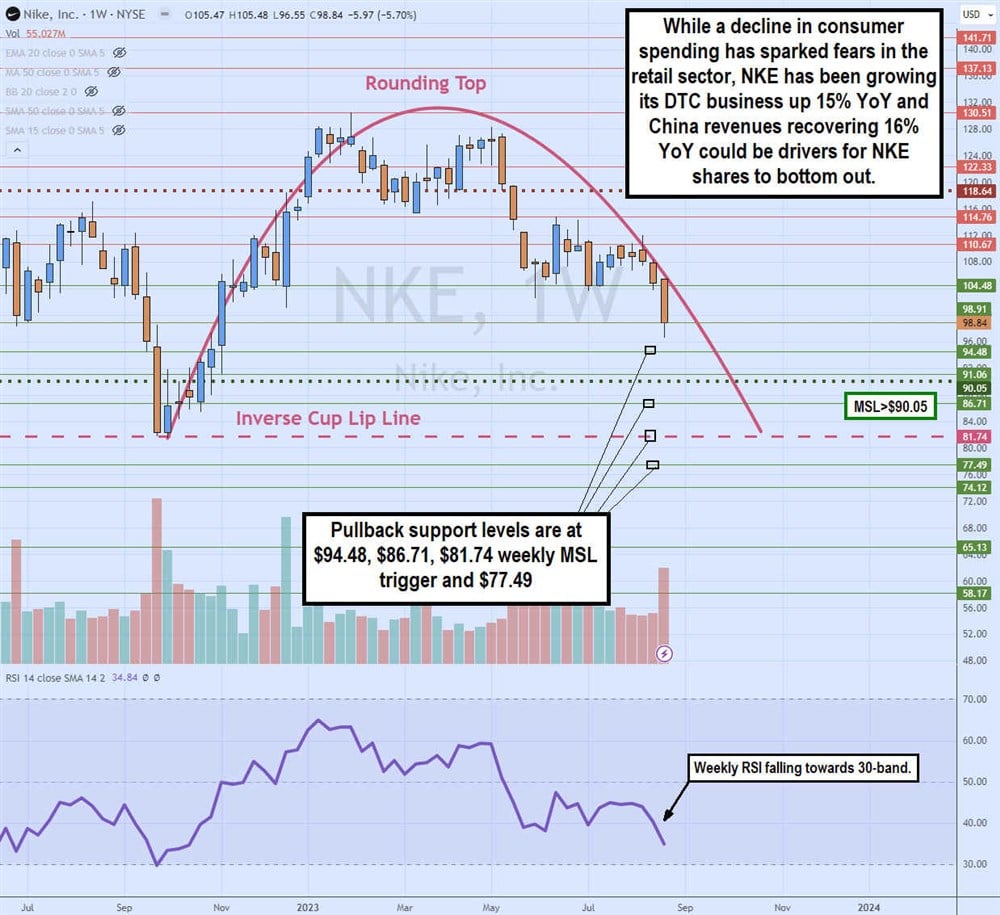
Athletic footwear and apparel maker NIKE Inc. (NYSE: NKE) stock is down 16.7% year-to-date (YTD). The recent earnings warnings from sports retailers DICK’S Sporting Goods Inc. (NYSE: DKS) and Foot Locker Inc. (NYSE: FL) have soured the already weak sentiment in the sector. These warnings imply that Nike's business is suffering as well.
While the implications may be foreboding for Nike, some key distinctions may indicate otherwise.
It's worth noting that Dick's attributed their earnings shortfall to NYSE: DKS">normalization in the camping and outdoor recreation segment andNYSE: DKS"> shrinkage, aka merchandise theft. Footlocker noted they are trying to move past their reliance on Nike products as consumer spending tightens. These are two very important factors that pertain to the 4 reasons that Nike stock should be in your portfolio on the pullbacks.
1. Nike is working towards inventory normalization to return to full product pricing.
Last year, Nike suffered margin compressions due to a piling up of inventory. This was a common theme for retailers across the board. This can result in higher sales but lower profits due to the extra promotions and discounts to move old product stockpiles. Nike suffered a 330 bps drop in gross margins in its fiscal Q3 2023 earnings as inventories rose 16% YoY to $8.9 billion.
In the recent fiscal Q4 2023 earnings report, Nike had a 140 bps drop in gross margins due to input costs and freight inflation. However, inventories were reduced to $8.5 billion flat on a YoY basis and lower by $400 million sequentially. Normalizing inventory levels will enable Nike to pull back on the promotions to move back to full price.
Nike is targeting low single-digit price increases in full-year 2024, supporting 140 to 160 bps expansion for gross margins.
2. China's business recovery is accelerating.
The China zero-COVID policy restrictions have been lifted, and business is recovering quickly. Nike experienced a 16% YoY revenue jump in fiscal Q4 2023 in constant currency to $1.81 billion. China outpaced revenue growth in North America, up 5%; Asia Pacific and Latin America, up 5%; and Europe, Middle East, and Africa, up 3% YoY. The company expects the recovery in China to continue.
3. The low stock price gives it more room for the upside.
Nike shares are trading down 16.7%, while the S&P 500 is trading up 15.5% YTD. It even has a 1.48% annual dividend yield. Underperforming stocks tend to see tax loss selling at year's end to recover as investors buy back the shares at the start of the new year. Nike has stated that consumer demand and traffic on its website and retail stores are robust.
4. Nike is bolstering its direct-to-consumer (DTC) channel.
This is one of the reasons why Foot Locker is trying to move away from dependence on Nike products. Nike's DTC competes with Foot Locker and all the retail outlets that sell non-exclusive Nike merchandise. They are competing with Nike for the same consumer dollars from the same consumers. Nike makes a higher margin without the middleman. Its Nike.com website is flourishing with its DTC channel and brick-and-mortar stores with its discounted merchandise.
Nike’s loyalty app incentivizes consumers to buy directly as members gain exclusive benefits ranging from early access to new products to discounts on purchases. The growing popularity of Nike’s DTC channel may be a key contributor to Footlocker cutting their guidance. It makes sense when they say that they want to diversify beyond relying on Nike products since consumers may go directly to Nike. Nike Direct reported a 15% YoY jump in revenues in its fiscal Q4 2023 to $5.5 billion, while wholesale revenues fell 2% YoY to 6.7 billion. Nike has said the promotional environment will continue through the first half of fiscal 2024, which could mean more pain for its wholesale partners like Dick's and Foot Locker.
Nike analyst ratings and price targets are at MarketBeat.

Weekly Inverse Cup Pattern
The weekly candlestick chart on NKE forms a rounding top leading into an inverse cup pattern. The inverse cup lip line formed a $81.74 low in October 2022. NKE triggered a breakout through the weekly market structure low (MSL) trigger at $90.05, climbing to a high of $130.51 in January 2023.
Shares eventually failed to retest that high and fell on the breakdown through the weekly market structure high (MSH) sell trigger at $118.64. Shares continue to fall, driven by the dual earnings warnings from DKS and FL. The weekly relative strength index (RSI) oscillator is falling again towards the 30-band oversold level.
Pullback supports are at $94.48, $90.05 weekly MSL trigger, $86.71, $81.74 inverse cup lip line and $77.49.




